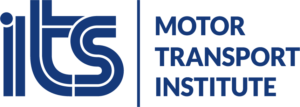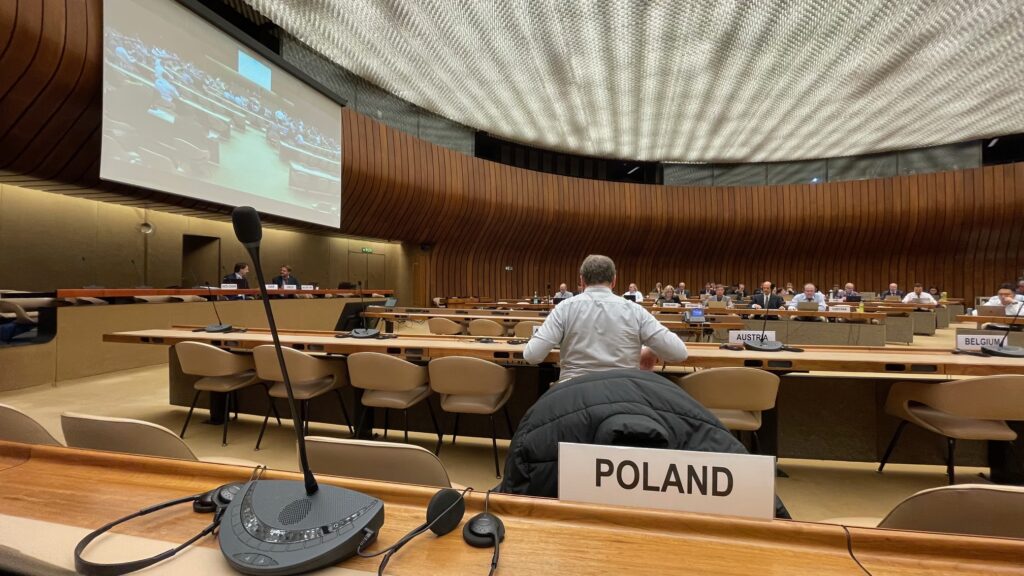Blog
Autonomous and Connected Vehicles Experts Meeting in Geneva
On September 23-27, 2024, the XX meeting of experts on automated, autonomous and connected vehicles GRVA took place in Geneva. The meeting was attended by a representative of the Connected and Autonomous Vehicles Competence Center (CK:PAP) Dr. Eng. Artur Gołowicz. The group of experts established within the GRVA belongs to WP.29 – World Forum for Harmonization of Vehicle Regulations.
During the September session of the GRVA, the topic of artificial intelligence (AI) in the automotive industry was discussed in the context of vehicle regulations. Currently, work is underway at the national level on a system for verifying the operation of artificial intelligence algorithms. For this purpose, it is necessary to identify gaps and necessary additions related to the wide application of AI.
The AI Mobility Audit project implemented in Germany aims to implement existing safety standards (norms), requirements for AI and its audit procedure. In particular, to develop procedures for the vehicle sector to ensure the reliability of AI-based solutions. When developing such procedures, many technical aspects must be taken into account, including efficiency, IT security, and non-technical aspects, such as ethics and user acceptance.
The task of the AI Mobility Audit and other similar projects is to introduce regulations on artificial intelligence by providing technical, organizational and legal foundations and developing methods and tools that are applicable in practice (e.g. credibility indicators).
A gap analysis was carried out in the German project to extend existing standards related to security and data protection in the automotive industry for artificial intelligence. The next steps are to coordinate the draft technical guidelines being prepared with States, industry and testing centers.
A similar project is being implemented in France (PRISSMA project). The aim, as in the case of the AI Mobility Audit, is to provide a method for validating a mobility system equipped with AI elements and to provide the possibility and demonstration of the system’s safety.
The standards currently used in conventional vehicles in the field of electronic systems are ISO 26262:2018 Road vehicles – Functional safety; ISO 21448:2022 Road vehicles – Safety of the intended functionality; UNECE R 155 Cyber security and cyber security management system; SAE J3061 Cybersecurity Guidebook for Cyber Physical Vehicle System. However, they do not directly address the subject of artificial intelligence. In the field of AI, a new standard ISO/DPAS 8800 Road vehicles — Safety and artificial intelligence is being developed. The final version of the document is currently in the voting phase (under development/draft approval phase).
It should be noted that in testing solutions using AI, a 3-pillar approach is used, similarly to ADS systems, i.e. testing the system in a simulated, controlled and real environment. Such an approach requires both the provision of tools enabling simulation tests of the system (software, database), as well as places for testing vehicles in a controlled environment.
Poland, like other member states, recognizes the potential of AI. However, it pays special attention to the issue of security of decision algorithms based on artificial intelligence. Work is currently underway on a Polish database reflecting traffic conditions on Polish roads (DARTS-PL project). It is to be used to train machine learning algorithms used in AI. By providing a large amount of verified training data, Poland wants to improve the safety of AI-based perception systems for automated vehicles that will appear on our roads in the future.
Source: unece.org
* Dr. Eng. Artur Gołowicz – Head of the Vehicle Dynamic Testing Laboratory of the Vehicle Homologation and Testing Department at the Motor Transport Institute, an expert appointed by the Transportation Technical Supervision.




